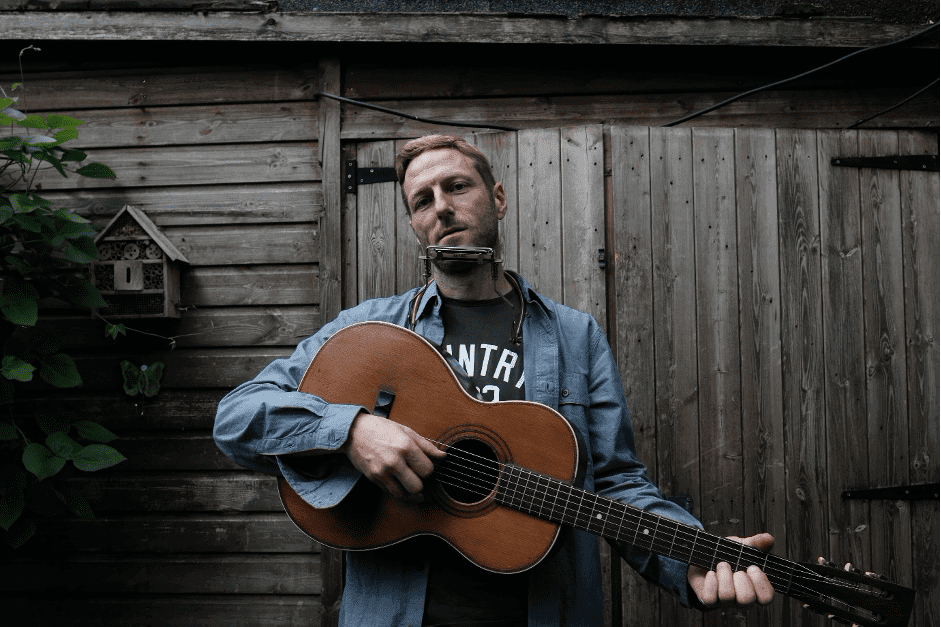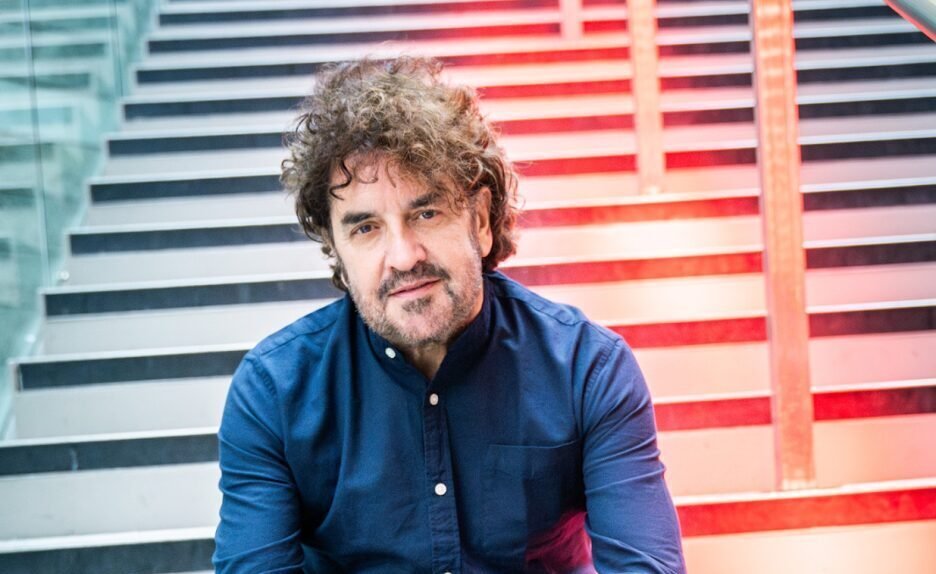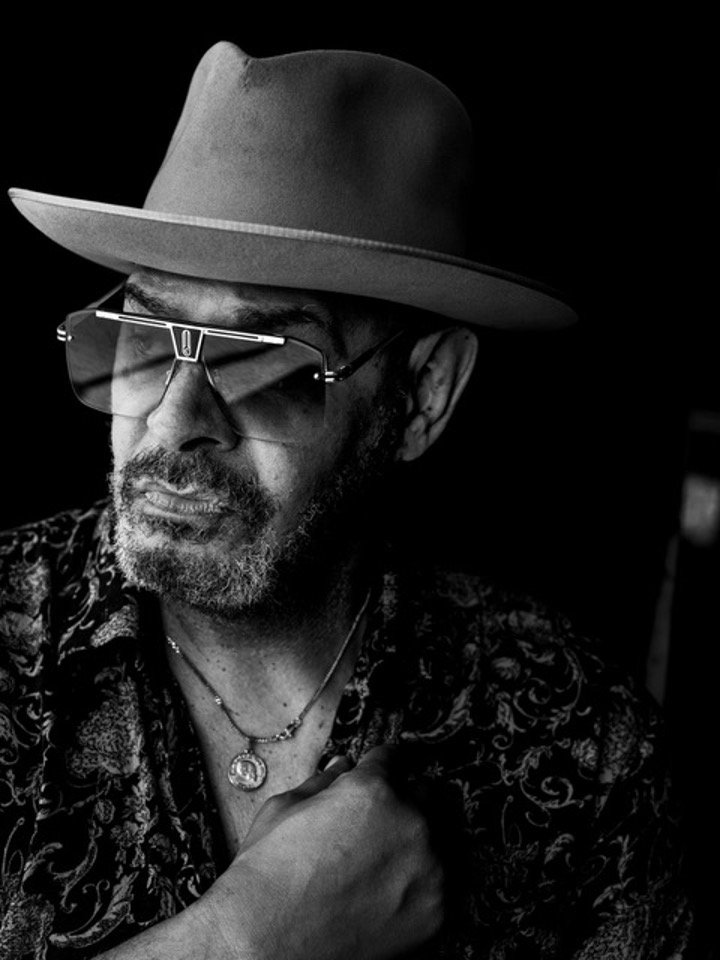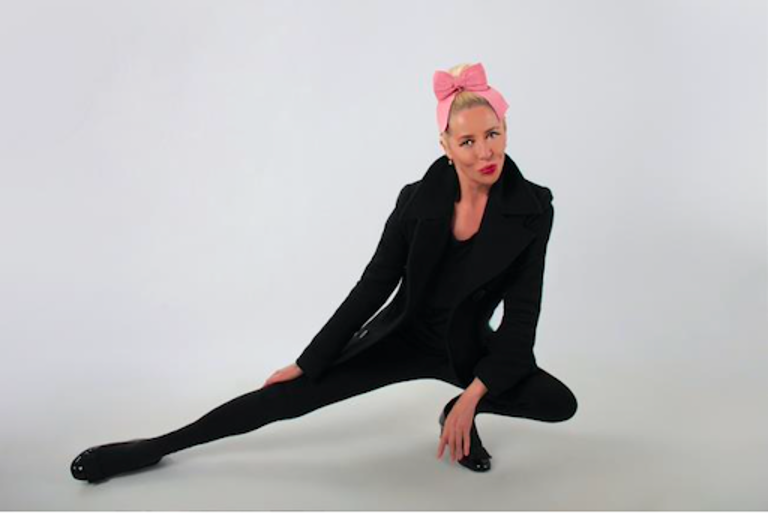On release of his new EP ‘Lion’s Path’ on Mellowtone Records, Music Writer, Matt Jacobson interviews bluesman, S.J. Downes.
“I feel all my inspirations feed into a natural flow and are part of my living being at any given time.“
The ‘Lion’s Path’ EP was written and recorded by Downes in the summer of 2020, comprising of four subtle and nuanced instrumental compositions. Recorded in real time to tape at his home studio, the tracks feature harmonica and multiple guitars, including a century old Lyon & Healy that takes central voicing on glass bottleneck slide. These beautifully layered recordings and arrangements capture the organic and spontaneous process, and take the listener on an acoustic journey from the 1920s into the 21st century.
Contained within the EP are 4 tracks, 3 acoustic voices, 2 magnetic tape machines and 1 giant tortoise called Darwin – overseeing the proceedings. Aside from that, Downes takes care of all writing, playing and production. LOVE, DEATH, HOPE, and UNITY perhaps simply describe the overall theme of each track…
Downes’ work spans the worlds of roots, folk, blues and old time, influenced by musicians and writers from the 1920s and beyond. Drawing inspiration from spirituality to the natural world – the macro to the micro – he gives these meditative productions a flavour all his own, with a conscious and hopeful energy present throughout. For me, “A beautiful arrangement and a must for all “
So, I interviewed the man himself about the new Ep; influences and life as a travelling Bluesman.
The early years, was music played in the family home?
My Dad played 5 string banjo and violin occasionally but only when me and my sister weren’t distracting him! My mum played folk guitar and sang folk songs too, she’d learnt back in the day. They both had good record collections, mostly 60’s stuff so I definitely picked up off their tastes; folk, country, blues and rock n roll. My strongest memories of music growing up were listening to the radio, but also watching films and the soundtrack music and scores that accompanied.
What was the first instrument you played, and did you start recording your own songs straight away?
When I was 10, a teacher at school suggested I learnt trombone and my dad jumped to his dream of learning trumpet at the same time. We helped each other learn and I remember us playing ‘When the Saints Go Marching In’ – roughly in time together, reading from the sheet music. My folks separated shortly after that which seemed to stunt our grand horn section aspirations!
Recording was always a big interest. I was all about cassettes growing up, recording off radio, making mixtapes, tape editing etc. I fell in love with Hip-Hop in its 88-91 heyday and used to hook up with friends and record jams using whatever gear, cheap keyboards, record players we had to sample records, make beats, loops etc.
My first ‘proper’ instrument after Trombone was Guitar. Spanish at first, then an electric at 15. I’ve always been self-taught at this. Shortly after, I got a harmonica and a 4-track tape cassette recorder, so similar to the recording spirit of this EP, I would record and layer tracks and do overdubs and yes record versions of songs i was learning and my own original compositions/songs also. There’s a DIY ethos that runs throughout all I do.

Your influences stem from 1920s and beyond, could you expand on who in particular and why they mean so much to you?
Discovering music from many eras for me has been a natural exploration in my lifetime so far from the start, which is what makes it so personal. I feel it only takes hearing one piece of music to open a whole world if you choose to dig deeper. My folks taste really hit late 60’s together. My Mum loved John Mayall, my Dad loved Canned Heat. And my ears were attracted to both and just by following the trail of their immediate influences in looking for new avenues of listening led me to John Fahey, JB Lenoir, Chicago Blues and John Lee Hooker to name just a few. Digging back further in time, through books, dusty record stores and mysterious names like Son House, Charley Patton and a host of the regional blues scenes and styles come to the fore. From Mississippi to Memphis, Texas to Georgia its ever expansive.
I am fascinated in study by the creative explosion of the late 20’s where recording technology of the time and eager record companies met with an explosion of evolved musical talent in communities across the US and similarly trends from then on in music history.
The image of the solo bluesman really attracted me then through hearing a lot of these players. All complete vision, singing, syncopated accompaniment, rhythm, melody, beat, music, dance and song all in one. The one artist who in folklore who most exemplifies this in popular culture now is Robert Johnson and my listening benefited from a wave of blues and roots reissues and releases in the early 90’s. Robert Johnson’s Complete Recordings on Columbia was one of these and probably influenced my musical path since then more than any other single recording. Other such releases were ‘Blind Willie Johnson’s Complete recordings, Son Houses , Complete 1965 sessions and a cassette called Bottles, Knives and Steel all on Columbia’s Roots and Blues reissue series.
Your life as a ‘traveling bluesman’, could you expand on the highlights of those travels, recording or playing?
The travelling bluesman idea relative to my life started as a projection of what I felt would be a good template for me to channel my direction and musical path forwards. This became clear to my mind when I was 16. I left home when I was 20 (1995) and moved to London, just on spec that it had the most possibilities to offer at the time. Since then my path has been a natural and very random one, moving, working, playing, settling in spots essentially following my intuition and opportunities which present themselves through chance and circumstance.
Appearances at Glastonbury festival and even a random film appearance playing guitar in a scene with Alicia Silverstone (this got cut, but still got to hang out) are random personal highlights. Moving to Liverpool in 2006 was the beginning of a great phase as it really helped consolidate my musical direction and become really active playing live as well as meeting so many great friends which remain through this time, such as the Mellowtone folks themselves.
A big part of my last decade was consolidated through playing at the Never Records exhibition in Liverpool in 2010, cutting songs to Vinyl in the moment. Since then, through moving away from Liverpool to help family through times, I’ve been able to keep in touch with Never’s journey which has led me to Derry and a film tour/road trip through Northern Ireland in 2014, recording by the Mississippi river and playing live in New Orleans, recording in a cave in Petra on trip to Amman, on the prairie in Kansas and finally recording at Brooklyn Academy of Music (BAM) Brooklyn at the start of 2020.
In that sense the EP represents a culmination of all these experiences, and I feel very fortunate and grateful to have completed what I consider to be a big cycle of learning in my own journey to be able to chart now. 29 years in fact. Time it takes for the planet Saturn to cycle the Sun is how my mind imagines it.
You draw on inspiration from spirituality to the natural world, can either naturally flow when recording, or can they ever hinder and halt the flow of creativity?
I feel all my inspirations feed into a natural flow and are part of my living being at any given time. I see especially any learnings more as tools or useful gifts that can be utilised in times of need, perhaps more so than disciplined practises though there is a slight element of study and practise, especially meditation and breathing practises for calming heart and mind when I want to and also concentrating my focus and I like Astrology too as an alternative and in some ways an abstract map of time and motion. Sun and Moon phases, and the greater planetary cycles and so on.
I see the natural world in a similar way as a map of time and motion, as I relate the measures we use to cycles in the natural world through the seasons. I work as a landscape gardener aside from my path as a musician, which means I am very connected to the outside natural world as its many changing phases through the year. Often ill record with windows open and there’s birds singing in the background or other general sounds of rain or breeze. I’m ok with this sometimes. Other time ill want to try and isolate the sound as much as possible.
The last song on the EP I recorded live in one take, spontaneously and then a load of Fireworks went off in the background. As it happened and i was playing I was thinking “what is that sound” and then figured it out and played the end of the tune to fit around the end of the fireworks. so, none of that including the music was planned, but it just happened, and I rode with it. In the end, I feel my flow of creativity is aided by me not placing any resistance of my own in its way, which is all my greatest challenge.

Lockdown; has this provided a time to reflect and create or has this period hindered creativity?
To be honest it’s probably some of both. While I managed to isolate a huge amount of time in the summer to commit to a burst of creativity, there were large periods where I found it difficult to naturally process my feelings and emotions into focused play. Lots of competing distractions of mind even isolated from the outside world. I think it’s a difficult thing to be purely present and creative by oneself without going too far into the mind, or one’s own bubble and it was my intent and focus to stay in my hearts realm and health over this time, connected to this time and in response to a quest for inner peace in a time of outer chaos.
Combined with the idea of being separated from people makes this more emotional as for me the feeling it produces is one of longing and exposed aloneness.
The Ep took a while to materialise in the form it finished as and in some ways is different to what I set out to do, aiming to do 2 songs with vocals, yet it is this emotional centre which went to form and guide the music which came out here and I started to realise this was the more powerful creativity at play, rather than my projected idea of what was going to happen.
I always remember the first lesson I learnt in Art at high school where my teacher told us, “Art is 1% Inspiration and 99% perspiration”, in this sense , I feel my task is not to be reliant of creativity appearing, but more to just keep working through all phases and trust that moments will come at the right time. I feel this EP represents 4 of those moments.
The Ep Lions Path: Love, Death, Hope, and Unity perhaps simply describe the overall theme of each track. When recording, do they entwine and become one subject to tackle, or do you tackle them separately?
Yep, I didn’t approach the writing of each tune or overall Ep with anything in particular in mind theme wise. I feel the description of these tracks in this theme order form a natural cycle in themselves, sonically and also emotionally, from root foundation to tragedy to a glimpse of light to eventual balance/resolve. All the tunes evolved from either from a powerful wave of emotion in the moment until the final track which just came together in a moment built upon ideas, I had been developing all summer.
Death Blues and Light Will Shine captured that feeling as i was experiencing it and I was able to play that feeling simply into sound. With regard to those titles/themes, death; represents the end of a cycle, a feeling of loss, a nothing. That was the feeling I had. The theme itself of death runs through the work of three influences for this track.
John Fahey is the first, and the title relates to a conversation me and a friend had listening to one of his albums back in the day, where it sounded like the most dark, haunting music we’d ever heard. The other two are Ennio Morricone and Peter Green who both passed earlier in 2020, so there’s a subtle nod to them as inspirations. ‘The Light Will Shine’ again was a wave of emotion and captured the central slide figure from this. I almost felt like the guitar was playing this through me on this tune, some old civil war thing or something.
It’s like in theme the response to the feeling that all hope is gone, a deep wave of sadness, but musically is a natural balancer to this, a spiritual or gospel tune of sorts and with the musical accompaniment it lifts the original line up into a hopeful chorus.
The first song started as a Love song (All My Life … I’ve been waiting for you) and was more like a joyful celebration to an external desire of completion, but then stepped back a pace and became a question of my own love, independent in that moment. This then becomes a question of the love I carry in the greater and musically it falls into line with a sound I’ve carried over a long time. This then makes it a love song still, but for life itself, searching for maybe but not dependent on another. A mood of the moment, whistled at any given point.
A song of the road or the river, mountains, trees. A life song, as in this is my heart opened by a love outside but then firmly centred independent of that cause.
Finally, the last track ‘A Better Way’ is two voices in one, synchronised played live in the moment, singing in harmony and then dancing complimentary to each other, one heart, one mind working together, unified.
Lions Path relates again to the idea of a lifeline unseen, direct and straightforward through all of the overlapping cycles. A greater journey, past the known, guided by nature itself. Or, it perhaps relates to the idea of a spirit to live by or a spirit that guides, or even that it is my intention and aim and quest to follow my own heart and believe in what’s meant to be and this is where I put my own faith and courage, in any time, independent of external challenge or circumstance.
Do you constantly think about writing or do you have to find time to stop, then work on a new recording?
Yes I do constantly have my imagination switched on, with writing a large part of that, in differing amounts though depending on task or work I’m doing. For playing and recording, I’m very good at producing music in the moment if my focus is so heightened to that cause, which guided me well with the Never records adventures and also when it’s time to capture a take I’m confident in just playing the track through without interruption or edit. I like this way of doing it, takes more trust but I feel is more fluid.
I’ve learnt from recording this E.P that my whole writing process benefits greatly and develops better from having a block of time to let it appear and evolve naturally. Especially in the way I’ve done this EP as I basically took care of every task, writing, playing, recording, mixing, mastering, so there’s lots of different processes to think about which intertwine and generally speaking I’m good at doing one thing at a time rather than trying to do everything at once, so having a block of time facilitates each process finding its own ground over time in one stream rather than these processes being broken.
And what next for S J Downes?
Who knows, it’s hard to project certainties anytime I feel and especially in unsettled times but only time can tell. Musically speaking i feel like this Ep represents the start of a new creative cycle in the larger frame of my life, all being well. The themes and sounds explored on this E.P I aim to continue to explore and expand upon and the focus for my time now is between writing lyrically, composing musically and developing my approach to analogue recording. Should there be opportunity to play live next year, i will look to develop my sets for that purpose, both solo and with guest musicians and ultimately i aim to continue recording regularly and just learning better ways to do stuff and generally be.
Thanks to S J Downes & Dave McTague / Mellowtone Records










